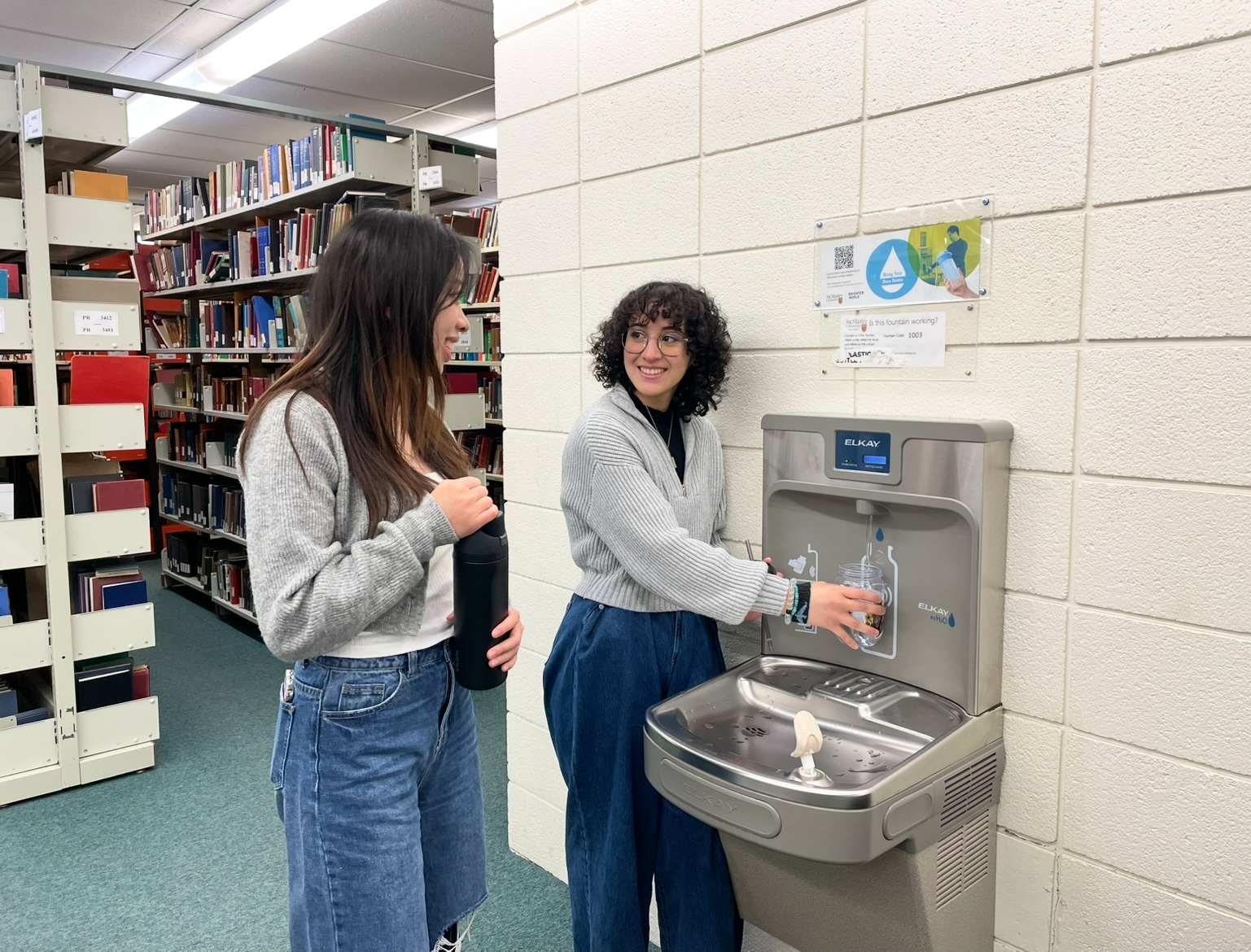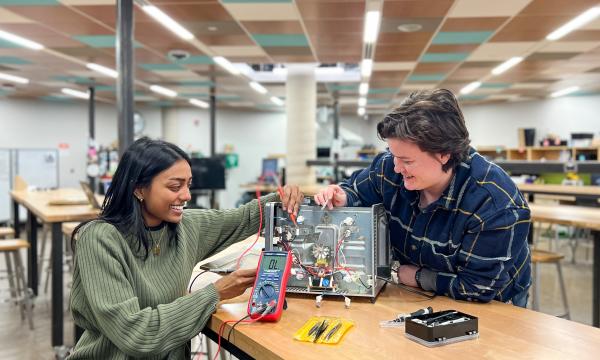
Within the walls of McMaster University Libraries, employees of the libraries work hard to implement systems and practices that support sustainability.
Vivian Lewis, associate vice-president and university librarian at McMaster University Libraries, says creating an Earth-conscious environment is an important aspect of the work done in the libraries.
“The university libraries are dedicated to finding ways to champion sustainability in its spaces,” said Lewis. “Part of our mission is to continue creating initiatives, events and systems that benefit the environment, and in turn, the McMaster community.”
The Thode Makerspace Repair Café is a popular event hosted at H.G. Thode Library of Science and Engineering that helps reduce waste. The workshop is hosted monthly throughout the academic year and encourages people to repair items they own rather than buy new. Staffed by volunteers with expertise in various areas such as woodworking, electronics, sewing and general tinkering, attendees are assisted in assessing and fixing broken items such as clothing, jewelry, small appliances, computers and sometimes bicycles.
A yearly initiative that promotes regenerative environmental practices is the Seed Library, run by the McMaster University Libraries Sustainability Committee. The Seed Library opens each winter, offering the McMaster community the opportunity to take up to five packets of seeds for free to use in their spring gardens. At the end of the growing season, borrowers are encouraged to return seeds from their harvests to help maintain the Seed Library for future seasons.
The Health Sciences Library practices sustainability through its commitment to keep furniture and technology out of landfills. This is achieved by rehoming such items, offering them to campus partners, local school boards and small businesses. When technology is obsolete and unable to be rehomed, it is recycled using the campus recycling services.
Among the additional initiatives at the university libraries that promote sustainability are:
- Designated collection bins for waste, paper, plastic, e-waste and pens, mechanical pencils, highlighters and markers.
- Water bottle refill stations to encourage the use of reusable water bottles.
- Compostable and carbon-neutral certified printer paper made of recycled sugar cane.
- The use of digital screens to reduce paper use.
- The Open Library, which allows patrons to take from or donate books to its collection.
- The Thode library services desk’s partnership with the student organization ReCoat, which works to give a second life to previously owned lab coats.
Lynne Serviss, associate university librarian, User Services and Community Engagement, says the libraries are always willing to take suggestions from patrons on additional ways to incorporate sustainability measures into its spaces.
“A lot of these initiatives actually come from students,” said Serviss. “They come to us with amazing ideas or with problems to solve and that’s where we get a lot of our really good programming. We would love for people to give us more ideas.”
We want to hear from you
If you have an idea for how the university libraries can introduce more sustainability initiatives, email the library.
Learn more
To learn more about sustainability at the libraries, visit the Libraries Sustainability Committee LibGuide and the Year of Environmental Action webpage

